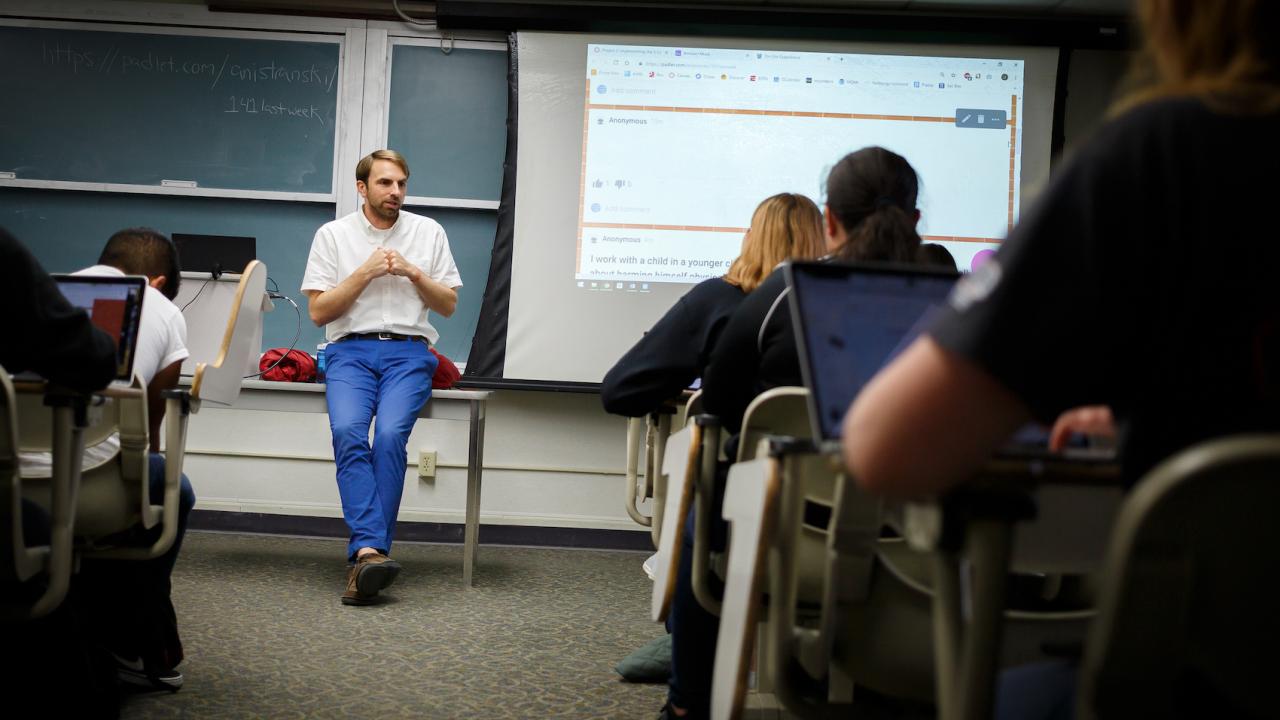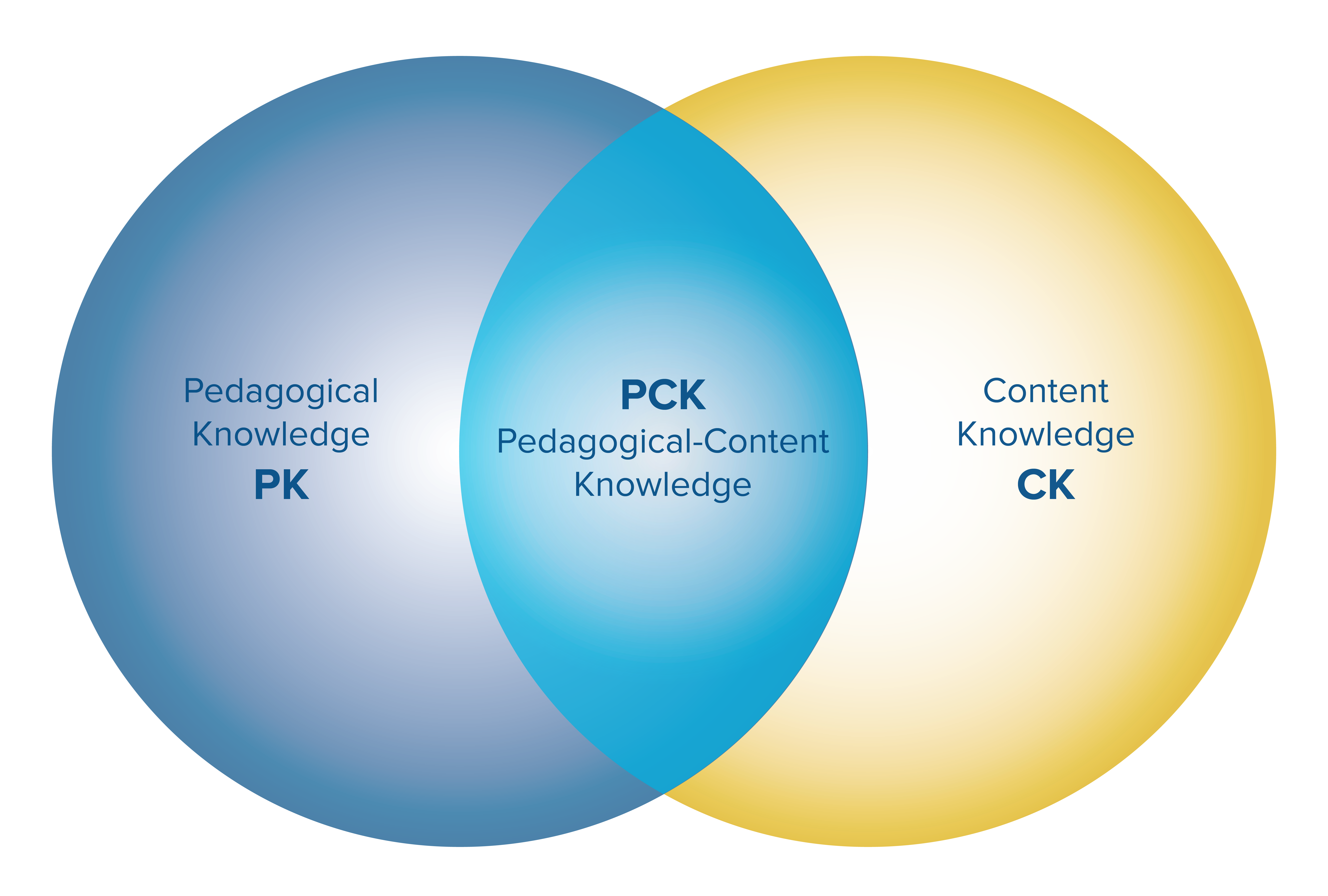
Project-Based Learning in the Social Sciences: Reflecting on Problems, Promise, and Pedagogical Content Knowledge - August 2019
By: Joe Anistranski, Assistant Professor of Teaching in the Department of Human Ecology
In my first two quarters teaching at UC Davis I was assigned four separate courses, including our three-course lifespan development series (HDE 100A, HDE 100B, HDE100C, HDE 141). These courses served more than 800 students, total. As daunting as that task was, designing and implementing these courses provided a prime opportunity to implement and test evidence-based classroom practices.
A Paradox
It is a major paradox in higher education that researchers who spend their lives as champions of evidence—both its trustworthy discovery and appropriate translation to practice—often lack appropriate foundations in evidence-based principles of teaching and learning. Stemming from this, we often embrace what I’ve termed the talking as teaching paradox: Higher-education instructors often devote a large proportion of time to lecturing when evidence suggests that an extended period of talking is a relatively ineffective teaching method. My goal is to uproot this paradox by deliberately implementing and testing more varied, evidence-based instructional practices.
I’ve spent my first year at Davis figuring out how that might work. My training in educational psychology, my teaching experiences, and participation in learning communities have helped me identify instructional approaches that reflect the learning outcomes in my courses, embracing the principle that, in general, more active approaches to learning facilitate deeper student engagement, retention of content knowledge, and foster higher-level applications of that knowledge (see Matsushita, 2018, for an extensive discussion).
Project-Based Learning
One evidence-based approach stood out as best supporting learning outcomes while allowing for varied instruction: project-based learning (PBL). This approach requires students to engage with cognitively challenging questions and/or problems to create a series of products—aligned with learning outcomes—that represent students’ learning in relation to real-world contexts or applications (Blumenfeld et al., 1991; Kokotsaki, Menzies, & Wiggins, 2016). While implementing a project-based approach, I’ve encountered three critical points of reflection: problems experienced (especially those of implementation), promise found (especially in building real-world skills), and the essential role of pedagogical content knowledge.
Problems with PBL
First, problems have emerged in implementing a project-based approach, especially in the large-enrollment (250+) courses. For any given project, students form groups with those around them and engage with an assessment posted on Canvas. From the physical spaces provided to irregular student attendance, the logistics of working on projects have been challenging. In surveys given at the middle and the end of the quarter, students consistently indicated challenges with group formation, group size, and distribution of responsibilities, as well as their frustrations with the classroom spaces and available technology. Focusing on those components within my control, the feedback prompted me to further incorporate best practices in designing group activities (see Frey, Fisher, & Everlove, 2009). After reflection,
I am iterating future assignments to delineate more appropriate group size (3–5 learners per group) and to require a clearer delegation of responsibility across students.
I am also more attentive to our teaching team’s movement around the classroom to assist with group formation. Reflection on these problems has been actionable and essential in developing a more coherent approach to project-based learning, which will spur further reflection during future implementation.
The Promises of PBL
Second, I’ve recognized the promise of project-based approaches in my discipline. Because we have relatively few “correct” answers in the social sciences, we tend to have many open-ended opportunities to challenge students with creative and deliberate projects that require evidence from their learning. Here, student feedback often positively emphasized our practical approach to course content.
Reflecting on this feedback reinforced my goal of providing real-world scenarios to build transferable skills related to content knowledge.
When designed deliberately and aligned with course goals, project-based approaches appear to support the types of skills and knowledge transfer that students will need in 21st-century work.
I wouldn’t have fully recognized this strength without reflecting on student feedback. Moving forward, I’ll continue to reflect on the elaboration of 21st-century skills in our projects—especially accountable collaboration and translating evidence to decision-making—while remaining attentive to students’ feedback as we pursue specific learning outcomes.
Pedagogical Content Knowledge
Third, the reflective process has helped me recognize how pedagogical content knowledge connects to both the problems and the promises of PBL. An essential component of effective teaching, pedagogical content knowledge facilitates high-caliber instruction when an instructor’s pedagogical toolkit fuses with thorough content-specific knowledge to recognize the variety of approaches necessary to teach the learners in a given classroom (in a long line of literature, see Shulman, 1986).

Across courses, my toolkit is often limited by available technology and aging learning spaces. My depth of content knowledge varies, and the needs of more than 800 learners oscillate. Reflecting on my day-to-day experiences, the most effective projects appear to have stemmed from my deepest content-area knowledge, creative methods with the lowest possible demand for updated learning spaces, and the opportunity for many learners to reach the same goals from a variety of approaches. I’ve recognized that my approach to project-based learning is only likely to improve as I establish broader expertise, have spaces that support my full pedagogical toolkit, and get a better sense of students’ needs in Davis. Effective project-based approaches and growth of pedagogical content knowledge go hand-in-hand.
In sum, I’ve had a chance to implement an active, evidence-based approach to learning across four social sciences courses. I’ve embraced the role of student feedback in reflection, admitting that I, on my own, can only see so far. Recognizing the promise of this method in developing real-world skills has cemented further plans for project-based learning in future courses. These projects should only grow in their support of transferable skills as I deepen my pedagogical content knowledge. As you engage with evidence-based approaches to teaching, I hope that this type of reflective and iterative process will benefit you, as well, as you grow your instruction.
As you think about problem-based learning, let CEE support your reflection with a free journal so that you can capture your insights about your teaching.
If you would like a reflective journal, complete the following form and we will send you one via campus mail.
References
Blumenfeld, P. C., Soloway, E., Marx, R. W., Krajcik, M. G., & Palincsar, A. (1991). Motivating project-based learning: Sustaining the doing, supporting the learning. Educational Psychologist, 26, 369–398.
Frey, N., Fisher, D., & Everlove, S. (2009). Productive group work: How to engage students, build teamwork, and promote understanding. Alexandria, VA: Association for Supervision & Curriculum Development.
Kokotsaki, D., Menzies, V., & Wiggins, A. (2016). Project-based learning: A review of the literature. Improving Schools, 19, 267–277.
Matsushita, K. (ed.) (2018). Deep active learning: Toward greater depth in university education. Singapore: Springer Nature.
Shulman, L. S. (1986). Those who understand: Knowledge growth in teaching. Educational Researcher, 15, 4–14.
